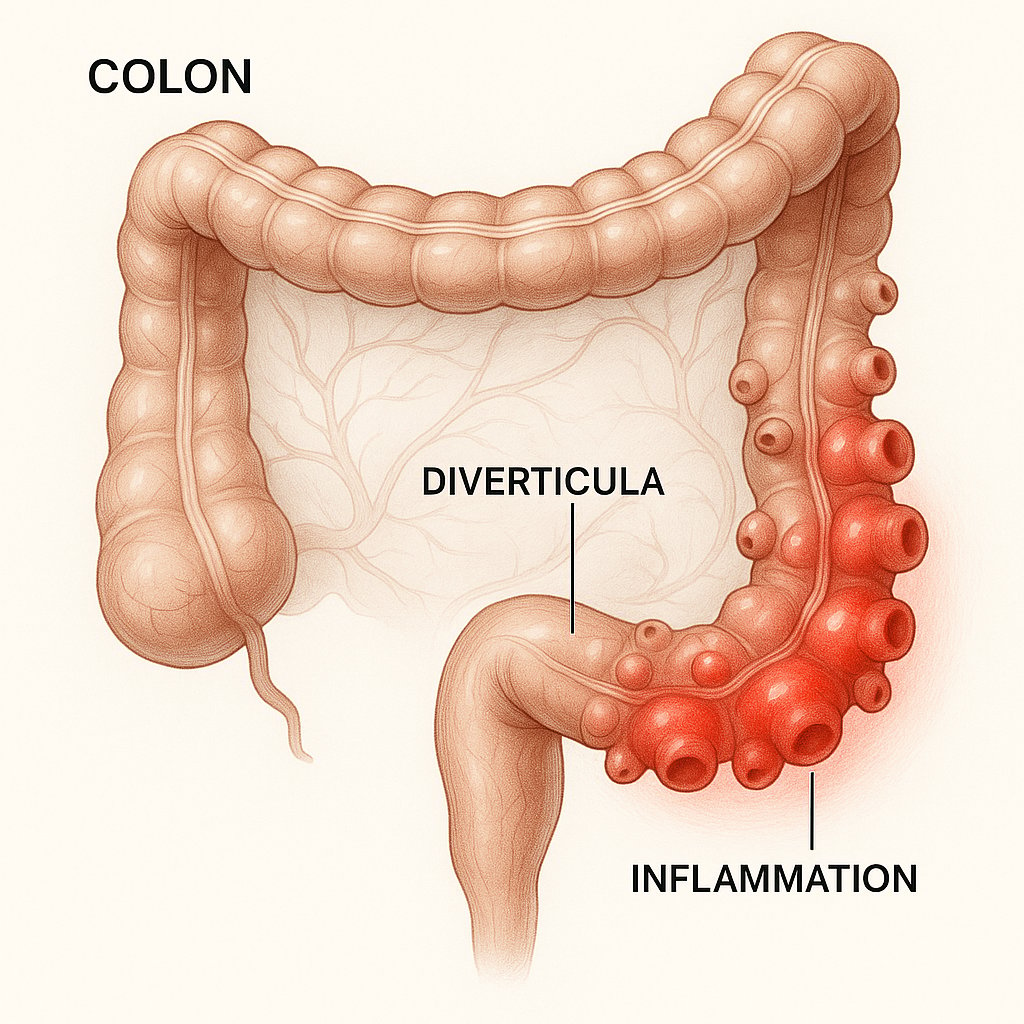Essential oils are increasingly used to help manage diverticulitis symptoms, but not all oils are equally effective or supported by research. If you’re looking for safe, natural support for diverticulitis, certain essential oils have shown potential anti-inflammatory and pain-relieving benefits, though none are a substitute for medical treatment. Understanding which oils are best—and why—can help you make smart, safe choices. In this guide, we cover the 8 best essential oils for diverticulitis, backed by recent data and expert recommendations.

Note: Always consult your healthcare provider before using essential oils for diverticulitis. For more details, see the Mayo Clinic Diverticulitis Care Guide.
What is Diverticulitis?
Diverticulitis is an inflammation or infection of small pouches (diverticula) that develop along the colon wall. Common symptoms include abdominal pain, bloating, fever, and digestive upset. Managing inflammation is crucial, and while essential oils may offer natural relief, they should complement—not replace—doctor-recommended treatments.
How Can Essential Oils Help With Diverticulitis?
- Reducing gut inflammation
- Easing abdominal pain and cramps
- Supporting healthy digestion
- Fighting harmful bacteria
While scientific evidence is still emerging, some essential oils show promise, especially in managing symptoms associated with gut inflammation and pain.
The 8 Best Essential Oils for Diverticulitis (with Research Data)
1. Oregano Essential Oil
Oregano oil is the most researched essential oil for gut inflammation.
Data: A 2016 animal study found oregano oil significantly reduced colon inflammation, E. coli levels, and improved intestinal barrier integrity (PMC, 2016).
How it helps: Anti-inflammatory, antimicrobial, and gut-protective.
2. Lavender Essential Oil
Lavender oil offers notable pain relief and anti-inflammatory effects.
Data: Shown to inhibit pro-inflammatory cytokines and offer pain relief comparable to some prescription drugs (Verywell Health, 2023).
How it helps: Calms spasms, relieves pain, reduces stress.
3. Peppermint Essential Oil
Peppermint oil is doctor-recommended for gut spasms and discomfort.
Data: Widely used in IBS and digestive care for its muscle-relaxing effects; recommended by Mayo Clinic community (Mayo Clinic, 2024).
How it helps: Eases cramps, relieves bloating, supports digestion.
4. Chamomile Essential Oil
Chamomile oil helps soothe digestive upset and inflammation.
Data: Traditional use is supported by studies showing anti-inflammatory and gut-calming properties (Verywell Health, 2023).
How it helps: Reduces spasms, calms the gut lining.
5. Ginger Essential Oil
Ginger oil is well-known for anti-inflammatory and anti-nausea benefits.
Data: Research supports ginger’s effectiveness for gut inflammation and pain management (Verywell Health, 2023).
How it helps: Decreases inflammation, relieves nausea, improves motility.
6. Frankincense Essential Oil
Frankincense oil may help lower inflammation and support immune health.
Data: Animal and laboratory studies show strong anti-inflammatory effects on gut tissues (StepAboveMassage.com, 2024).
How it helps: Reduces inflammatory markers, soothes gut lining.
7. Clove Essential Oil
Clove oil provides antimicrobial and pain-relieving effects.
Data: Known to reduce pain and fight bacteria, which may support gut healing (Moksha Essentials, 2024).
How it helps: Eases pain, supports gut health, fights infection.
8. Turmeric Essential Oil
Turmeric oil contains curcumin, a potent anti-inflammatory compound.
Data: Turmeric and its oil are widely used for IBD (inflammatory bowel disease) relief (Verywell Health, 2023).
How it helps: Fights inflammation, protects gut barrier, aids healing.
Safe Use: How to Use Essential Oils for Diverticulitis
- Never ingest essential oils directly. Always use a carrier oil and apply topically, or use in aromatherapy.
- Dilute properly: Mix 2–3 drops of essential oil with 1 tablespoon of carrier oil.
- Test for allergies: Apply a small amount to the skin before broader use.
- Consult your doctor, especially if you have other medical conditions or are taking medications.
- Best practices:
- Diffuse for calming effects
- Massage diluted oil onto the abdomen
- Use warm compresses for relief
Real-World Example
A 2022 survey on StuffThatWorks.Health found that less than 1% of users tried oregano oil, but among them, several reported reduced symptom flare-ups when used alongside medical care.
FAQs About Essential Oils and Diverticulitis
Are essential oils a cure for diverticulitis?
No, but they may help relieve symptoms and support overall gut health.
What are the risks?
Risks include allergic reactions, skin irritation, and digestive upset if ingested.
Should essential oils replace medical treatment?
Never. They should only be used as supportive care.
Conclusion
The best essential oils for diverticulitis—like oregano, lavender, peppermint, and chamomile—offer anti-inflammatory and pain-relieving benefits backed by current research. While these natural remedies can help manage symptoms, always use them safely and under medical supervision. Ready to explore natural gut relief? Consult your doctor and try adding one of these research-backed oils to your self-care routine!
